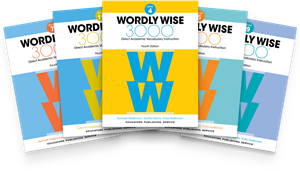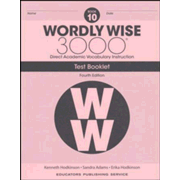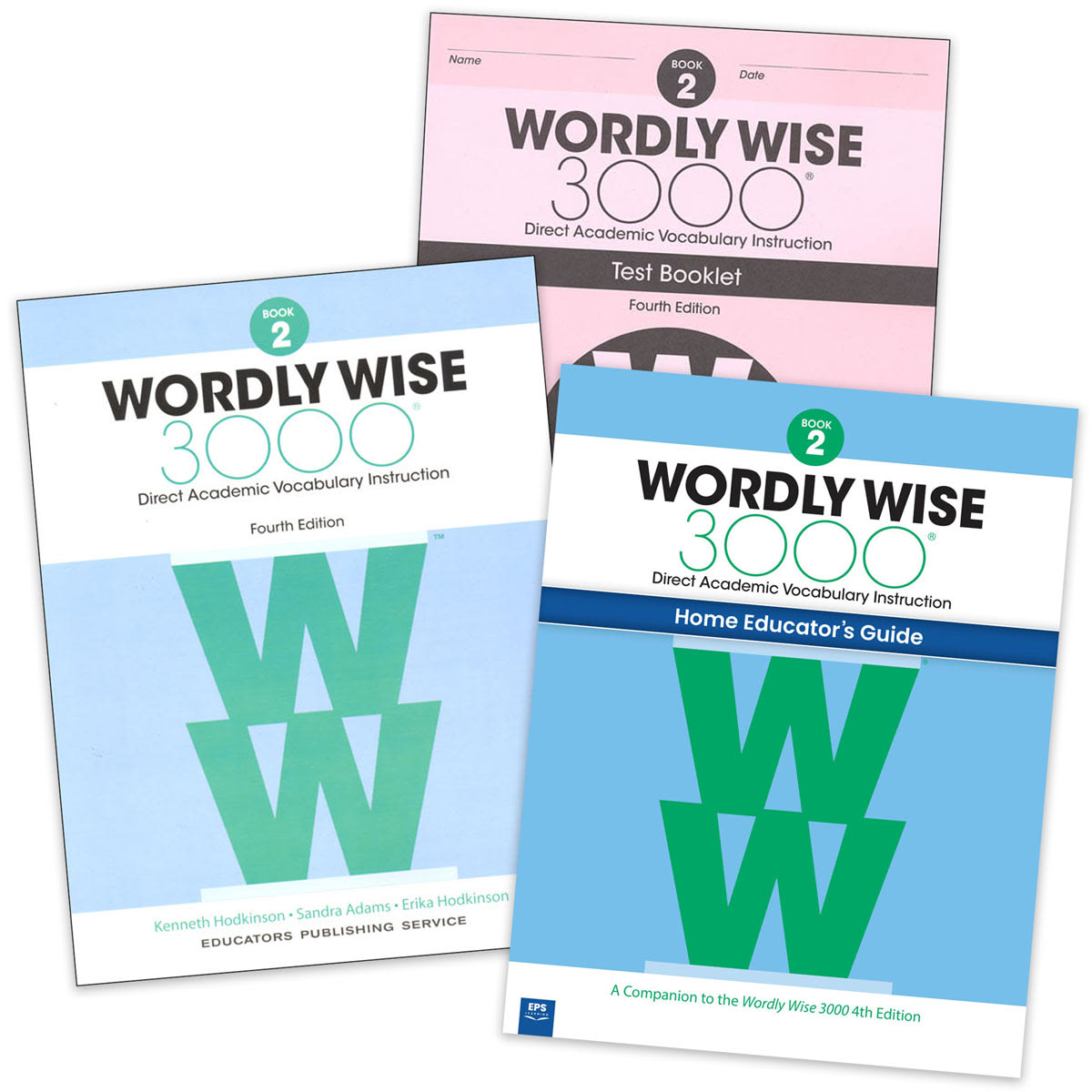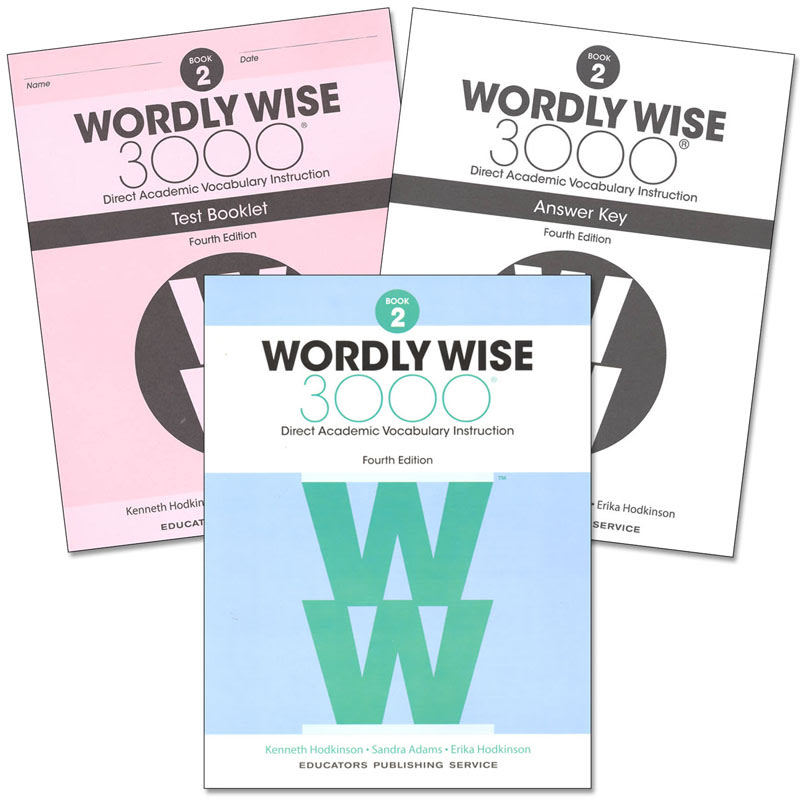The Wordly Wise series has gone through many changes over the years since it was first published. However, it remains a top choice for homeschoolers because the variety of exercises in each book helps students understand the multiple meanings that a single word might have depending how it is used in a sentence.
The fourth edition Wordly Wise 3000® courses for grades two through twelve are labeled according to grade (i.e., Book 2 through Book 12). However, the vocabulary is somewhat advanced, so you might choose a lower-level book if your child is average in their reading and vocabulary skills. (Book K and Book 1 courses are also available, but they are significantly different and require direct teaching. I don’t find them as useful for homeschoolers as the rest of the series.)
This review is for the printed books for Wordly Wise 3000, but the same material is also available as an online program called Wordly Wise i3000™.
In this series, students use one list of words each week in a lesson with five different exercises. The courses for Books 2 and 3 teach ten words per lesson, while the rest of them teach fifteen words per lesson. The lists that present words and their definitions includes discussion prompts that can be used with another student or parent. For instance. Book 3, Lesson 10 teaches the word device and includes this discussion question that is designed to reinforce the meaning of the word: "Talk with your partner about a helpful device in your home."
The different types of exercises help children become familiar with each word’s definition(s) and usage(s). Exercises vary from course to course but always include work with definitions and proper usage. In addition, students might work on analogies, synonyms, word origins, prefixes, suffixes, and identifying parts of speech. The style of the exercises for the first four days alternates every week, providing even more variety to the lessons. For the fifth day, every lesson includes one exercise with a reading passage followed by either comprehension or vocabulary questions. An optional Vocabulary Extension at the end of each lesson can be used in several ways that might involve writing, discussion, and drawing.
For the first three or four exercises in each week’s lesson, many of the exercises have multiple-choice questions. However, sometimes students underline or circle items, mark items as correct or incorrect, or write either words or sentences. Even the simple-sounding exercises can be challenging and require critical thinking skills because they are so well constructed.
Some exercises require students to come up with their own individual responses. For instance, in the tenth lesson in the student's Book 8, they are instructed to complete sentences to demonstrate the meaning of the bolded word in a sentence such as, “I would like to be an advocate for _____."
For the final exercise in each lesson, students write out answers in response to questions about a reading passage’s.
The optional Vocabulary Extension directs students to first discuss their ideas in regard to a specified word and its usage with a partner or group, then write their own conclusion. Parents whose children are working independently will have to determine how to handle these exercises, but it should be fine if students simply write out their own ideas and discuss them with a parent. (Suggestions for using the Vocabulary Extension are in the Home Educator's Guides.)
Each lesson also includes a sidebar with “Fun & Fascinating Facts” about words. These truly are interesting, so try to make sure students take time to read them. They are often incorporated into the Vocabulary Extensions.
Periodic reviews are presented after every two to four lessons, depending on the course.
All these different exercises ensure that children truly understand the meanings of words to be able to complete them.
Tests and Teacher Resources
Each course has a classroom-designed Teacher's Resource Book, but homeschoolers can buy the much less expensive Answer Key or the Home Educator's Guide for each course. The Home Educator's Guide has lesson plans and lesson presentation suggestions that might be most useful with students up through about fourth or fifth grade but less so for older students, since I suspect they will be working independently.
Homeschoolers can also purchase the Test Booklet with mid-term and final tests and its own answer key. Homeschool distributors generally sell grade-level bundles that include the student workbook, the Test Booklet, and either the Answer Key or the Home Educator's Guide. Even with answer keys, parents will have to assess what students write for the open-ended questions since those answers are not predictable.
Summary
The variety of exercises in Wordly Wise 3000 does a great job of teaching the multiple meanings of words and encourages students to use vocabulary words in ways more likely to make the words part of their vocabulary.






















